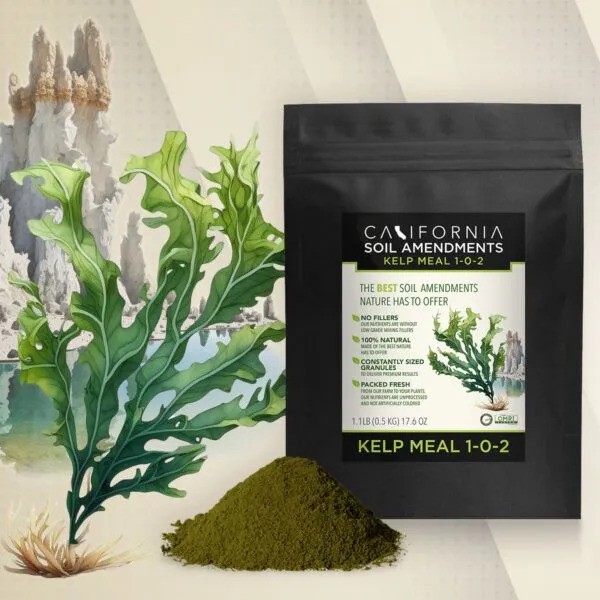In recent years, there has been a noticeable shift in agriculture practices, with farmers exploring alternative methods to boost crop yields sustainably. One such emerging trend gaining attention is the use of kelp meal as a valuable addition to crop nutrition. In this article, we will delve into the world of Kelp Cuisine for Crops, exploring the various ways kelp meal can maximize yields and benefit both farmers and the environment.
Nutritional Benefits of Kelp Meal for Crops
Understanding Kelp as a Natural Fertilizer
Kelp, a type of seaweed, is rich in essential nutrients that promote plant growth. As a natural fertilizer, kelp provides a balanced mix of macro and micronutrients crucial for optimal crop development.
Essential Nutrients in Kelp for Plant Growth
From nitrogen and potassium to trace elements like zinc and iron, kelp offers a comprehensive nutrient package. This not only enhances crop yield but also contributes to the overall health and resilience of plants.
Application Techniques for Kelp Meal
Soil Incorporation
Farmers can incorporate kelp meal directly into the soil, enhancing its nutrient profile. This method ensures a slow release of nutrients, providing sustained nourishment to crops throughout their growth cycle.
Foliar Spraying
Foliar spraying involves applying a kelp solution directly onto the leaves of plants. This method allows for quick nutrient absorption, particularly beneficial during critical growth stages.
Seed Coating
Coating seeds with a kelp meal mixture before planting establishes a nutrient-rich environment for germination. This early boost sets the stage for robust plant development.
Enhancing Soil Health with Kelp
Soil Structure and Kelp’s Role
Beyond nutrition, kelp positively influences soil structure. It aids in soil aggregation, promoting water retention and root penetration, ultimately creating a healthier environment for crops.
Microbial Activity Boost
Kelp’s organic matter catalyzes microbial activity in the soil. This symbiotic relationship enhances nutrient cycling and promotes the availability of essential elements for plant uptake.
Environmental Sustainability of Kelp Agriculture
The environmental benefits of kelp agriculture extend beyond the field. Kelp farming requires minimal freshwater, and the cultivation process absorbs carbon dioxide, contributing to carbon sequestration and a smaller environmental footprint.
Challenges and Considerations
Dosage and Overuse
While kelp offers numerous benefits, using it judiciously is crucial. Overapplication may lead to imbalances in soil nutrients, affecting crop health.
Compatibility with Other Fertilizers
Farmers must carefully consider the compatibility of bulk kelp meal with other fertilizers to avoid adverse reactions that may diminish its effectiveness.
Crop-Specific Considerations
Different crops have varying nutrient requirements. Understanding these variations is essential for optimizing the use of kelp meals across diverse agricultural settings.
DIY Kelp Meal Preparation
Sourcing Quality Kelp
For those inclined towards a hands-on approach, preparing kelp meal at home starts with sourcing high-quality kelp. Coastal regions often offer opportunities to harvest fresh seaweed for personal use.
Simple Kelp Meal Recipes
Creating a kelp meal involves drying and grinding the harvested seaweed. Various recipes cater to different crop needs, allowing farmers to customize their kelp-based fertilizers.
Economic Benefits for Farmers
Cost-Effectiveness of Kelp Meal
In addition to its agricultural benefits, kelp meal proves cost-effective for farmers. Its affordability, coupled with long-lasting effects, makes it an attractive choice for sustainable agriculture.
Long-Term Savings
The long-term savings associated with kelp-enhanced agriculture, including reduced dependency on synthetic fertilizers, contribute to the economic viability of this innovative approach.
Scientific Research Backing Kelp’s Efficacy
Scientific studies consistently support the positive impact of kelp on crop growth and yield. Researchers emphasize the need for further exploration and integration of kelp into mainstream agricultural practices.
Future Trends and Innovations
As interest in sustainable farming practices grows, the future holds exciting possibilities for kelp agriculture. Ongoing research and innovations are likely to unveil new ways to harness the full potential of kelp for crop enhancement.
Conclusion
In conclusion, Kelp Cuisine for Crops is proving to be a game-changer in agriculture. Its nutritional richness, application versatility, and environmental sustainability make it a valuable asset for farmers seeking innovative and sustainable approaches to maximize yields.

